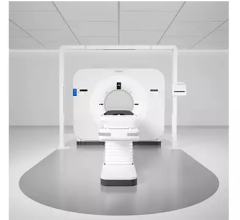With radiation oncology treatments, the goal is to hit the tumor with as much ionizing X-ray energy as possible, while sparing adjacent, healthy tissue. The UC Davis Comprehensive Cancer Center has taken a major step toward that goal as one of the first sites in North America to install a sophisticated new multi-leaf collimator (MLC) system on its medical linear accelerators.
The MLC system precisely focuses high-energy, megavoltage x-ray beams that increase doses to tumors and minimize doses nearby. The 160-leaf collimator also allows radiation oncologists to customize the therapeutic beams to conform to a tumor’s shape and size. For patients, the highly conformal treatments mean fewer side effects and less time on the treatment table
With its increased leaf speed and advanced reliability and monitoring of leaf position, the new system will be used to treat a wide variety of diseases, including prostate, breast and lung cancers, as well as for highly specialized treatments such as stereotactic body radiosurgery,
“This system is safe, reliable, accurate and fast,” said Stanley Benedict, chief of clinical physics in the UC Davis Department of Radiation Oncology. “It’s great technology for our patients.”
The collimator is the latest weapon in the NCI-designated cancer center’s treatment options. The system complements other sophisticated radiation oncology technologies already established at UC Davis, such as Gamma Knife radiosurgery, image-guided radiotherapy and high-dose-rate brachytherapy, which pinpoint tumors and avoid healthy tissue.
Multi-leaf collimators act like high-tech lenses, focusing radiation beams and conforming them to the shape of an individual’s unique tumor. With its 160 tungsten leaves and larger field size (40 centimeters by 40 centimeters), the new device can precisely target tumors both large and tiny. This versatility is particularly helpful when treating head and neck and other complicated tumors surrounded by normal tissue.
The new device is accurate to within .01 millimeters, allowing oncologists to conform treatments to tumors with the utmost precision.
In addition to the MLC, a new software package precisely controls the leaves to ensure that the beam aligns tightly to the target. The software also can move individual leaves as quickly as 6 cm per second. The collimator’s high speed is ideal for radiation dose control and for arc-based treatments, in which a linear accelerator gantry rotates around the patient while simultaneously conforming to the tumor from different angles and continuously shaping the radiation beam.
“This is a very safe system,” said Richard Valicenti, chair of the Department of Radiation Oncology. “And because it’s so fast, we can reduce individual treatment times from between 25 and 50 percent.”
The system also can “interdigitate,” a process that helps radiation oncologists target multiple, tiny areas with different doses. “It’s the equivalent of painting by numbers,” said Benedict. “We can paint in certain doses to specific parts of the body.”
It will also be ideal to conduct stereotactic body radiotherapy, which delivers higher doses in fewer treatments.
“Stereotactic treatments tend to be longer because they’re larger fraction sizes,” said Valicenti. “Now we can do these treatments with shorter durations. The technology might also allow for fewer treatments.”
The collimator, called Agility, and controlling system, called Integrity, was manufactured by Elekta, a global company based in Stockholm, Sweden that develops tools, treatment planning systems and software programs for radiation therapy, radiosurgery and brachytherapy.
UC Davis Comprehensive Cancer Center is the only National Cancer Institute-designated center serving the Central Valley and inland Northern California, a region of more than 6 million people. Its specialists provide compassionate, comprehensive care for more than 9,000 adults and children every year, and access to more than 150 clinical trials at any given time. Its innovative research program engages more than 280 scientists at UC Davis, Lawrence Livermore National Laboratory and Jackson Laboratory (JAX West), whose scientific partnerships advance discovery of new tools to diagnose and treat cancer. Through the Cancer Care Network, UC Davis collaborates with a number of hospitals and clinical centers throughout the Central Valley and Northern California regions to offer the latest cancer care. Its community-based outreach and education programs address disparities in cancer outcomes across diverse populations.
For more information: cancer.ucdavis.edu.


 November 04, 2025
November 04, 2025 









